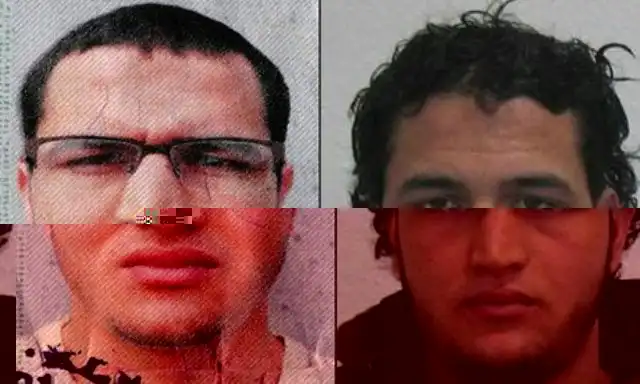
Berlin attack suspect, Anis Amri was shot dead in Milan by an Italian policeman.
When Anis Amri pulled out a gun during a chance encounter in a northern suburb of Milan, the rookie Italian policeman who thought he was confronting a small-time drug peddler ended up facing Europe’s most wanted man.
Officer Luca Scata crossed paths with Amri in the early hours of December 23, 2016, four days after the Islamic State affiliate drove a truck into a busy Berlin Christmas market, killing 12 people and injuring more than 70 others.
But the 30-year-old Scata, a member of the police force for less than a year, barely lost his composure: Using the common expletive from his native Sicily, he blurted out “Minchia!” (F*ck!) before shooting his target dead with a single bullet.
“That’s all he could say when we asked him what went through his mind at that moment,” his boss, Maurizio Vallone, told dpa in an interview. “That made us all laugh: Scata is really a calm, young and disarmingly simple guy,” he also stated.
Vallone is a senior officer with a broad remit: he leads the Italian police department overseeing all street-level operations, including patrols and roadblocks. Previously, he was an anti-Mafia cop in Naples and Sicily.
Amri arrived in Sesto San Giovanni, 10 kilometres north of central Milan, on a desperate run from Berlin via the Netherlands, Belgium and France. Scata and his colleague, Christian Movio, had their patrol car parked just outside the train station.
They stopped Amri because he “tried to make himself less visible” as soon as they set eyes on him, and he was holding his purse suspiciously tight, Vallone stated. That made Movio and Scata presume that he was hiding drugs, rather than a gun.
When asked for identification, Amri spoke in Italian and said he would take his papers from his purse. Instead, he pulled out a weapon, shooting 36-year-old Movio in the right shoulder. Scata, positioned further back for cover, intervened with a fatal shot.
“We are Christians, so the death of a person is never cause for celebration,” Vallone stated. But Scata and Movio’s was “a textbook operation” that has been re-enacted in an in-house DVD for training purposes, he also stated.
What stopped Amri in his tracks was “one of a million” Italian police roadside checks carried out last year, Vallone noted. “It might have been a coincidence that [Scata and Movio] bumped into him,” but the way they dealt with the situation was not, he insisted.
“It was 3 am, and instead of minding their own business and staying warm and cosy in their car, these two officers got out and checked [a shifty looking man], and as soon as he reacted, neutralized the threat,” Vallone said proudly.
That fortuitous interception turned the Italian police duo into international heroes. But their reputation took a knock when alleged neo-fascist sympathies emerged via social media.
The Berlin government cancelled plans for them to be awarded Germany’s highest civilian honor for bravery, the Federal Cross of Merit, much to the chagrin of their boss, who downplayed the social media incidents as “boys’ pranks.”
“It did a lot of damage, because I think [they] deserved an international prize,” Vallone said, insisting there was “nothing further from [Scata’s mind] than certain kind of [fascist] ideologies.”
Scata and Movio were partialy vindicated in March, when they received a Golden Medal for Civilian Bravery from the hands of Italian President Sergio Mattarella. In addition, they have been promoted, and moved nearer to their home towns.
Last year’s events in Sesto San Giovanni also drew attention to Italy’s lucky status as the only major European Union country to have been spared from Islamic terrorist attacks. Several hypotheses for this have been put forward.
For example, the country has a smaller and fairly integrated Muslim community, seen as less prone to radicalization. It also has an extensive intelligence and police apparatus, partly the legacy of decades-long fights against the Mafia and domestic Terrorism.
“Sooner or later our luck might run out: it is not only possible, but likely that a terrorist attack will happen in Italy, so why we remain on very high alert. We have been lucky so far, but we have also been prudent,” Vallone stated.